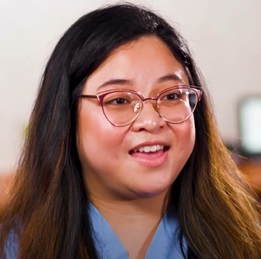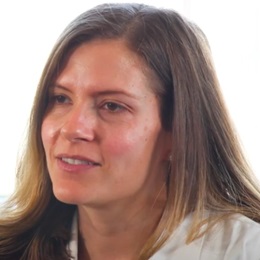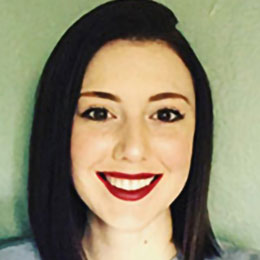Health Sciences
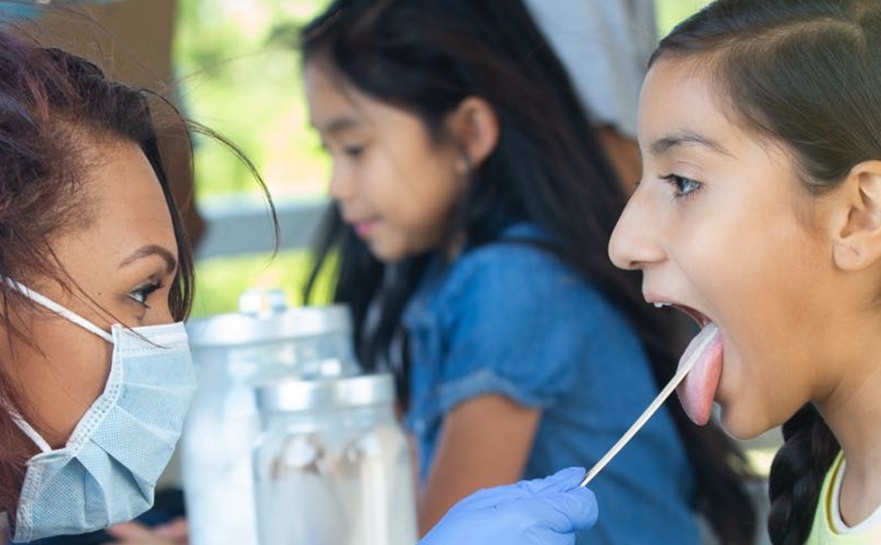
Request Information
Bachelor of Science in Health Sciences
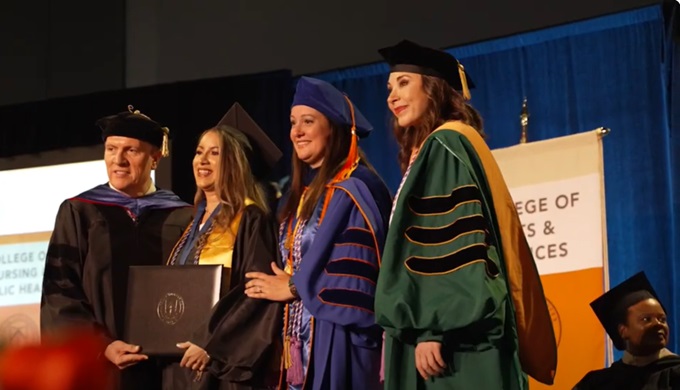
South University’s Columbia campus is proud to offer a Bachelor of Science in Health Science degree. As part of the Bachelor of Science in Health Science program, there is a broad core curriculum consisting of studies in humanities, math, science, business, and the evolving healthcare delivery system in the U.S. There is a Generalist Track or you can specialize in Public Health, depending on your career goals. When you complete South University’s Health Science program, you’ll be can pursue entry-level employment* in a variety of healthcare settings, such as health practitioners’ offices, hospitals, home healthcare services, outpatient care services, nursing care facilities, health insurance companies, and state and government healthcare programs.
*South University does not promise or guarantee licensure, employment, or salary amounts.
Institutional Accreditation
South University is accredited by the Southern Association of Colleges and Schools Commission on Colleges (SACSCOC) to award associate, bachelor, master, and doctorate degrees. South University also may offer credentials such as certificates and diplomas at approved degree levels. Questions about the accreditation of South University may be directed in writing to the Southern Association of Colleges and Schools Commission on Colleges at 1866 Southern Lane, Decatur, GA 30033-4097, by calling (404) 679-4500, or by using information available on SACSCOC’s website (www.sacscoc.org).
Admissions Requirements
General Undergraduate Admission Requirements
Note: Not all Online Program offerings are available to residents of all U.S. states. Please contact an admissions representative for further information.
To be admitted to any of the undergraduate programs at South University, the prospective student must provide proof of high school graduation as recognized by the state of residence on the date the degree was earned, or the equivalent in which a diploma was earned, with a minimum CGPA of 1.5 on a 4.0 scale within 5 weeks of the start date (refer to Conditional Acceptance). Students providing a GED must meet the minimum required test score deemed as passing in each section as required at the time of testing.
The prospective student must also complete the university administered placement tests within the first quarter of attendance. South University accepts the International Baccalaureate Program diploma as meeting the requirement for high school graduation. Credentials earned outside the United States must be evaluated by a NACES or AICE-member credential evaluation service. Please speak with an admissions representative for more information.
Students with less than the minimum CGPA of 1.49 on a 4.0 scale may meet admissions requirements by submitting a minimum combined SAT (Evidence-Based Reading and Writing, and Math) score of 700 or 900 on the SAT requiring an essay portion, a combined ACT score of 18, or meet the criteria established for acceptance as a transfer student.
Students with a CGPA between 1.49 to 1.0 on a 4.0 scale may be admitted provisionally for two quarters. Failure to achieve a 1.5 CGPA in the first two quarters of attendance will result in dismissal. Students may appeal the dismissal by following the Procedures for Appealing Academic/Financial Aid Dismissal Policy.
Students with less than a 1.0 on a 4.0 scale do not meet the admissions requirements for South University.
Acceptable verification of high school graduation or the equivalent would include a high school transcript (official or unofficial), or GED scores and state-authorized examination scores (ex. HiSET, TASC). In states that maintain a database that serves as an official registry of high school and GED graduates, an excerpt from the official database documenting the student's graduation or GED completion may be used.
Campuses in South Carolina must be provided with official high school transcripts or GED scores.
Please see the policy on GPA Calculation for Admission for additional information
Conditional Acceptance
Students may be conditionally accepted by submitting unofficial copies of documentation required for the admission requirements. Conditional acceptance is allowed for 5 weeks beyond the start of the student’s first session. Failure to provide acceptable, official documentation, as stated in the admissions requirements, within 5 weeks from the start date will result in the following:
- Removal from class
- Cancelation of enrollment
- No final course grades
- No transcript
Students who do not provide acceptable documents for full, unconditional acceptance within the 5 week period will not be responsible for tuition and related fees. South University may grant exceptions to the 5 week period for unusual situations or circumstances. All exceptions must be submitted to the Office of the University Registrar for approval.
Admission of Transfer Students
Note: Not all Online Program offerings are available to residents of all U.S. states. Please contact an admissions representative for further information.
To be eligible for admission, transfer students must complete the application procedures and satisfy the following criteria:
- Submit a completed application for admission.
- Have earned 24 or more credit hours, or the equivalent (e.g. 16 semester hours), with a cumulative GPA of 1.5 from an acceptable accredited collegiate institution.
- Submit official transcripts (including verifiable faxed transcripts) from all colleges and universities attended.
- Submit self-certification of high school graduation or GED completion.
For transfer of credit practices refer to the applicable section under the Academic Affairs section of this catalog.
To be admitted as a Transfer student into South University the prospective student must have earned 24 or more quarter credit hours or the equivalent (e.g. 16 semester hours), with a cumulative GPA of 1.5 from an acceptable accredited collegiate institution. Official transcripts from the collegiate institution(s) must be received within 5 weeks of the start date (refer to Conditional Acceptance), and who are not required to take ENG0099 and/or MAT0099, will be exempt from taking the UVC1000 Strategies for Success. Students will select another 4 credit course in consultation with their Academic Advisor or Academic Counselor to fulfill the degree requirements.
Students with 24 or more quarter credits with a CGPA of between 1.49 to 1.0 may be admitted provisionally for two quarters. Failure to achieve a 1.5 GPA in the first two quarters of attendance will result in dismissal. Students may appeal the dismissal by following the Procedures for Appealing Academic/Financial Aid Dismissal Policy.
Students who are citizens of countries other than the United States should refer to the section entitled International Student Admissions Policy.
Students who are transferring from or to a school within the University of North Carolina or the North Carolina Community College System should be aware of the Comprehensive Articulation Agreement approved by both governing Boards on March 1, 1996 and revised in September of 2008. This agreement may be found in its entirety at the following website.
For additional admissions information please see the admissions section here.
Career Outlook
These are some of the career options* you can explore when you have earned your degree:
- Healthcare Consultant/Nursing Home Administrator
- Clinical Manager/Medical Office Manager/Practice Manager
- Insurance specialist/Medical Reimbursement Specialist
*South University does not promise or guarantee licensure, employment, or salary amounts.
Course Requirements
Please see the South University academic catalog for program specific course requirements.
Choose one additional course from the list below:
(must be taken concurrently)
(must be taken concurrently)
Recommended electives include:
Outcomes
Offered at Columbia, Richmond and Virginia Beach.
The Bachelor of Science in Health Sciences degree program is designed to provide a firm foundation for competency development in health sciences or in public health that prepares graduates to seek entry-level employment in a range of positions in the healthcare industry. Such employment occurs at facilities including health practitioners' offices, hospitals, home healthcare services, outpatient care services, nursing care facilities, health insurance companies, and state and government healthcare programs. The program is designed to prepare students for graduate study and the recognition of the need and ability to engage in continued personal and professional growth in the healthcare field.
The Core Curriculum of the University which is completed in the first two years of the program is designed to provide students with a foundation in the humanities, mathematics and science. During the second two years, the curriculum provides for a broad focus on essential business knowledge, the evolving healthcare delivery system in the United States, and knowledge development and utilization in the health sciences.
After successful completion of the Health Sciences program, students receive a Bachelor of Science in Health Sciences degree. Completion of the first two years of the BS in Health Sciences degree program may provide students with the required prerequisite courses to apply for professional programs such as the Bachelor of Science in Nursing degree program. However, admission to these programs is competitive at most institutions (including South University) and is not guaranteed. Students interested in transferring credit must consult with the institution that they wish to attend in order to determine if and under what circumstances courses will transfer. This consultation should occur before taking the courses. Please be aware that some institutions will not accept online science and laboratory courses for transfer credit.
Program Student Learning Outcomes
Graduates should be able to:
- Utilize the principles and theories of the natural, social, behavioral, and health sciences to serve as competent and considerate healthcare professionals.
- Demonstrate effective and culturally sensitive written, oral and interpersonal communication skills with individuals, groups and peers in a variety of healthcare settings.
- Identify and apply exemplary ethical and professional behaviors in various healthcare positions and organizations.
- Apply creative and critical thinking skills to identify, explore, and develop alternative solutions for a range of healthcare delivery system issues and challenges.
- Effectively search, analyze and report on healthcare related data through the application of information technology and health management information systems.
- Effectively apply organizational and management skills that incorporate knowledge of the political, financial, economic, and public health issues which impact the healthcare delivery system.
Upon completion of the Bachelor of Science in Health Sciences, graduates should be able to:
- Describe the interaction between resource management, organizational theory, marketing and public policy to safeguard and sustain the public health of individuals and populations.
- Apply principles of public health planning collaboratively with health service providers, policy makers, and healthcare consumers in the implementation and evaluation of health promotion programs.
- Identify and analyze current and emerging issues facing the health of diverse communities and populations.
- Describe and critically evaluate public health research questions to proactively develop and design innovative healthcare programs.
- Prepare for continued studies in advanced Public Health degree programs.
What's New
Latest News and Blogs

Apr 09, 2025
Elevate Your Future: The Power of Continuous Learning
There are many ways to constantly be learning to help improve a career. Explore these tips to help you continuously be learning.

Apr 08, 2025
Celebrate our 2024 DAISY Honorees
Celebrate the 2024 DAISY Honorees from South University. We are so proud of our Honorees for all their hard work.

Apr 01, 2025
Mindfulness for Beginners: How to Get Started
In this next installment of the QEP series, learn some valuable tips to help improve your mindfulness.

Mar 19, 2025
First-Year Student Jeopardy Winners at Florida Academy of Anesthesiologist Assistants
Four first-year Anesthesiologist Assistant students win the Jeopardy game at the Florida Academy of Anesthesiologist Assistants conference.

Mar 12, 2025
Alumni Spotlight: From High School Dropout to CEO
Learn how Nadine Singh utilized her education from South University to create her own healthcare services.

Mar 11, 2025
Psychology Careers: Addiction and Substance Abuse Counselors
Learn how addiction counselors aid in substance abuse and addiction recovery.
Fill out the form and a representative will contact you today to better understand your academic goals plus answer any questions you may have.
Campuses offer flexible learning formats* including: on-campus, virtual instructions, and online courses.
*Clinical, practicum, and externship requirements exist in certain programs and require field experiences. Learning formats may not be flexible.
Success! Your request was submitted. We'll be in touch soon!
In the meantime, you can view some of our FAQs.
If you want to talk to an admissions representative ASAP, please contact us at 1-888-444-3404.
Outstanding Education for Remarkable Careers
We're committed to helping our graduates make an impact in their professional and personal lives. We applaud our alumni and the difference they make. Check out what some of our healthcare graduates have to say.


